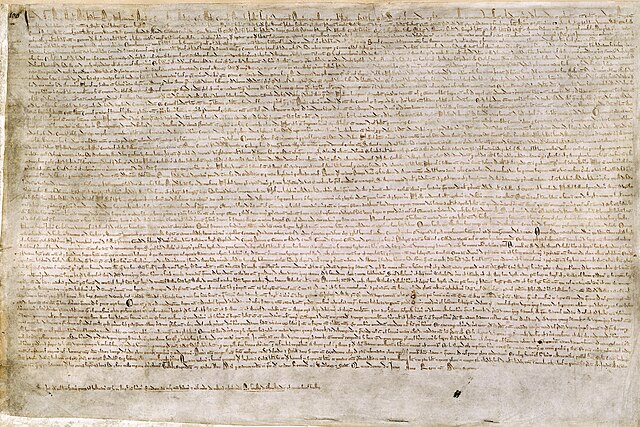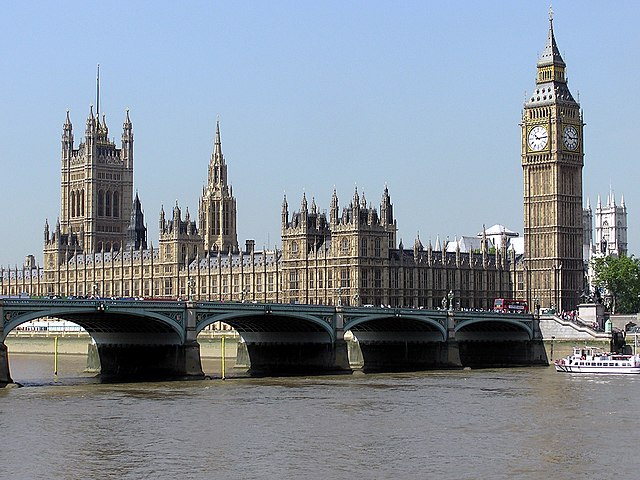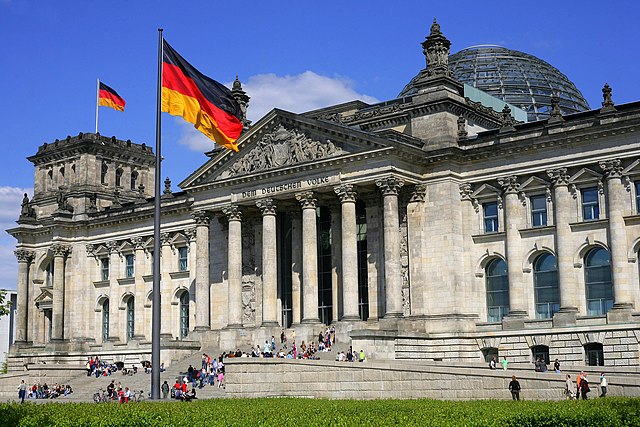In modern politics, and history, a parliament is a legislative body of government. Generally, a modern parliament has three functions: representing the electorate, making laws, and overseeing the government via hearings and inquiries. The term is similar to the idea of a senate, synod or congress and is commonly used in countries that are current or former monarchies. Some contexts restrict the use of the word parliament to parliamentary systems, although it is also used to describe the legislature in some presidential systems, even where it is not in the official name.
The facing benches of the House of Commons of the United Kingdom are said to contribute to an adversarial style of debate.
The House of Representatives of Japan
The Federal Assembly of Switzerland
A 1215 edition of Magna Carta, as featured on display at the British Library
A parliamentary system, or parliamentary democracy, is a system of democratic government where the head of government derives their democratic legitimacy from their ability to command the support ("confidence") of the legislature, typically a parliament, to which they are accountable.
The Palace of Westminster in London, United Kingdom. The Westminster system originates from the British Houses of Parliament.
The Reichstag Building in Berlin, Germany. The Consensus system is used in most Western European countries.
House of Representatives of Belize
Parliament of Canada








